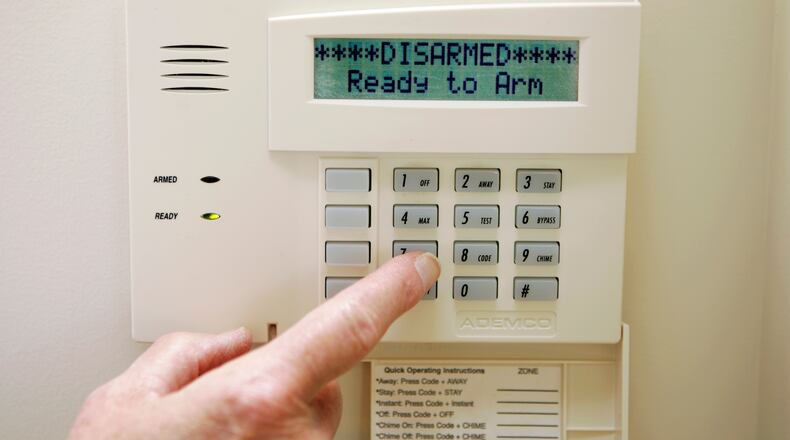Brookhaven is among a few metro Atlanta cities that fines alarm system companies instead of residents for repeated false alarms. But that practice could become illegal if a bill makes it through the state Legislature.
The bill would stop cities from enforcing fines on alarm companies for “a false alarm that occurs through no fault” of their own. However, Brookhaven police claim their city’s policy has dropped false alarms by more than 50% over the past few years, freeing up police resources and wasting less of cops’ time.
“Alarm systems represent a contract between the alarm companies and their customers,” Police Chief Gary Yandura said in a statement to The Atlanta Journal-Constitution. “Since it is the companies who are summoning police to alarm activations, we believe those companies — and not the business owners or homeowners — are the appropriate entities to receive fines for excessive false alarms.”
Sandy Springs was the first Georgia city to adopt an enforcement policy that shifted the responsibility for false alarms to companies instead of customers. It went into effect in 2018, but the north Fulton city was immediately sued by multiple companies. Sandy Springs prevailed in federal court.
Brookhaven had passed its own false alarm ordinance that was modelled after Sandy Springs’ policy but didn’t begin enforcing it until the legal dust settled.
According to data provided by Brookhaven police, the number of false alarms has dropped from 3,949 calls in 2015 to 1,798 calls in 2020 — a 54.5% decrease. Over that same period, legitimate alarm calls have remained between 5% and 9% of all alarm call responses.
Brookhaven police Lt. David Snively said the fine program played a large factor in that dropoff.
“Ultimately what this ordinance has done is it has given alarm companies a real, tangible reason to make sure that their systems are in good working order,” he said. “To be certain that they are maintaining them and fulfilling maintenance requests.”
The bill that would repeal these ordinances, HB 465, was introduced in mid-February and is sponsored by six State House Republicans. The only exception where cities would be able to fine alarm system companies is if the false alarm was due to the company’s “error or improper installation,” according to the current version of the bill.
It still must pass the House and then the Senate before it becomes a law. The AJC’s Legislative Navigator gives the bill a 15% chance of passing.
Since Sandy Springs and Brookhaven passed their city ordinances, both have gone through some changes.
Sandy Springs now requires alarm companies to verify burglar alarm activity through security camera video, audio or in-person confirmation. Last October, Brookhaven softened their policy, which initially gave officers the choice to stop responding to homes and businesses that had more than four false alarms within a two-year period.
Snively, who said that police never acted on that option, said officers will currently respond unless there is a fine that an alarm company hasn’t paid for more than 30 days. Fines are issued on the third false alarm within two years. Snively said officers will respond to any residents’ 911 call, and that denied service only applied to calls from alarm system companies.
On a normal shift, the Brookhaven police department has nine patrolling officers, so cutting down unnecessary alarm check-ups is critical, Yandura said.
“Responding to 2,151 fewer false alarm calls each year means that Brookhaven police officers are available to more efficiently respond to legitimate emergencies throughout the city,” he said.
An independent audit requested by the city was recently completed, and its results found that a handful of alarm system companies accounted for the majority of fines issued by the city.
From January 2020 through November, fines issued by the city amounted to $70,250, the audit found. Of that, more than 58% has yet to be collected.
Its results were presented at the Brookhaven Advisory Audit Committee meeting on Tuesday, where Assistant City Manager Steven Chapman said it bolsters the city’s standing against the bill.
“We feel that we have the data and CRI’s (Carr, Riggs & Ingram) audit, we have independent confirmation of what we think is true,” he said. “This is a bigger fight, and we think we’re doing the right thing.”
About the Author
The Latest
Featured



